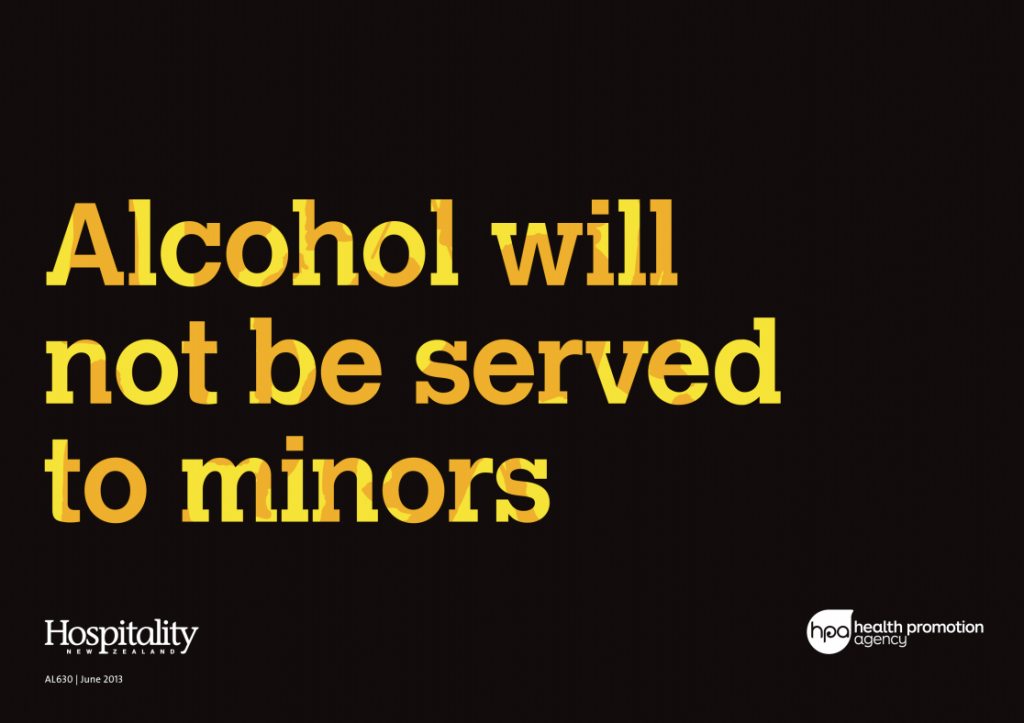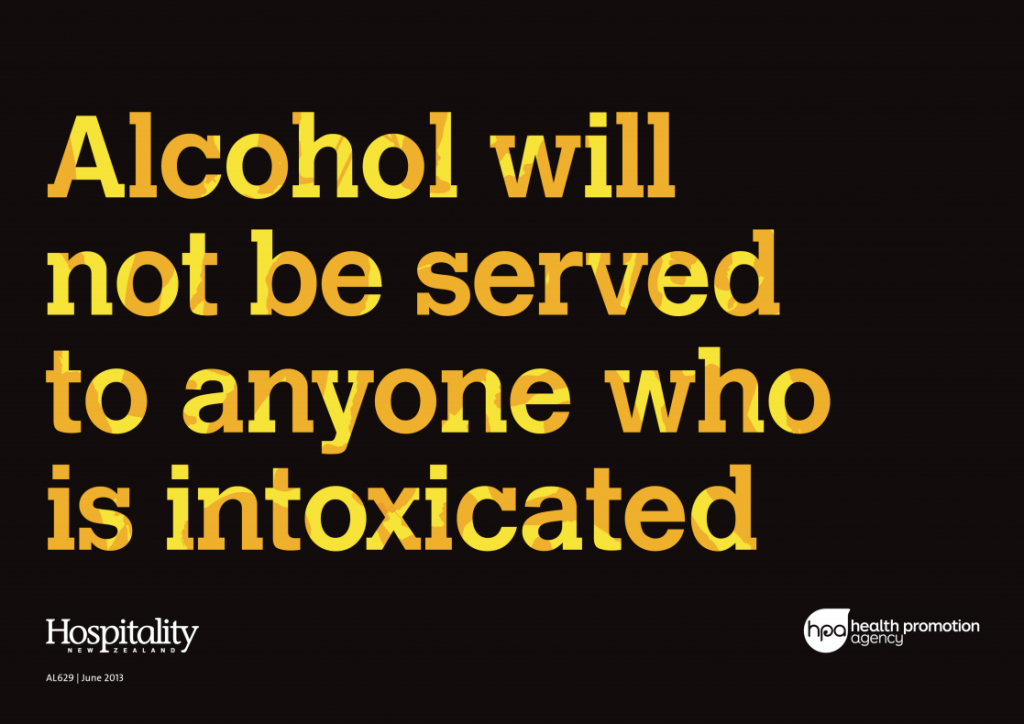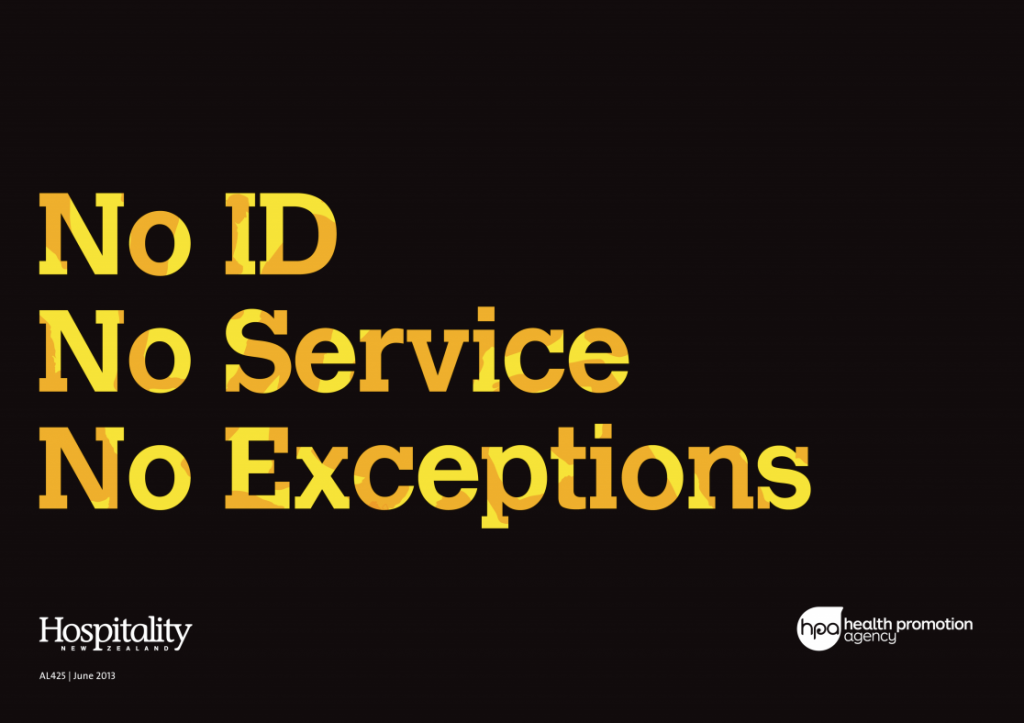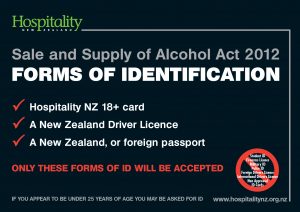Managers certificate
It is a requirement under the Sale and Supply of Alcohol Act 2012 that at all times when alcohol is being sold or supplied to the public a duty manager is responsible for compliance. A duty manager’s certificate authorises the holder to manage any licensed premises.
Requirements for an application
The minimum age requirement is twenty years of age.
• Six months experience at licensed premises in the hospitality, grocery or liquor industries.
• Licence controller qualification from an approved course provider.
• Photo ID (Passport, HANZ 18+, drivers licence).
• Reference from your current employer stating; training, experience and character.
• Work Visa issued by Immigration New Zealand (if applicable).
The first certificate is issued for 12 months; a renewed certificate is issued for a three year period.
Applying for a Manager’s certificate
To apply for a Manager’s Certificate, you must have a Licence Controller’s Qualification (LCQ) which involves New Zealand Qualifications Authority unit standards 4646 and 16705.
Please enquire with the council for where you can enrol in LCQ training
Once the course has been completed you can send an application to us. The application documents can be acquired from the council.
What happens after I apply for a Manager’s Certificate ?
All applications are sent to the police and also to the licensing inspector. You may be contacted by the licensing inspector to conduct a brief interview.
If there are no objections, the certificate will be issued. If opposed, your application may be heard at a public hearing and will involve your local council’s Licensing Committee.
Once issued the certificate is valid for one year and then an application for renewal is made.
Renewal of a Manager’s certificate
Managers whose records are on file with the council will be sent a renewal application no less than a month before the certificate is due to expire. It will be sent to the postal address we currently have on file. Included as part of the application for renewal is a questionnaire to test your knowledge of the Sale and Supply of Alcohol Act 2012. This must be completed correctly for your application to begin to be processed.
If you hold a Licence Controller Qualification (LCQ) under the Sale of Liquor Act 1989 and have not completed and provided a Bridging Test Certificate then you will be required to undertake a new LCQ course outlining the units related to the Sale and Supply of Alcohol Act 2012.
It is important to let us know if your address changes between renewals, so you receive the information in a timely manner.
It is the responsibility of the certificate holder to ensure an application for renewal is lodged prior to the expiry date. If your certificate expires before an application for renewal is lodged then your certificate is no longer current and an application for new manager’s certificate must be applied for.
New certificates are valid for one year. At renewal time, if no opposition is made, the certificate is renewed for three years.
Appointing a temporary or acting manager
Acting Manager
An acting manager can be appointed when a duty manager is ill, absent or on annual leave for a period of no more than three weeks at any one time and for a maximum of six weeks in a 12 month period. It is not necessary for this person to apply for a Manager’s Certificate. If the appointment is to be for more than 48 hours then you must contact the council, in writing, prior to their start date or complete the online application form below.
On, Off and Club Licences
The aim of the Sale and Supply of Alcohol Act 2012 is not to restrict liquor sale and supply, but to promote safe and legal drinking.
To sell alcohol, you must ensure that you have the correct alcohol licence.
On Licence
An on licence allows the sale or supply of alcohol for consumption on your premises.
Examples of premises that require an on licence to sell or supply alcohol include:
• restaurant (includes BYO)
• tavern, bar or pub
• nightclub
• hotel
• cinema or theatre
• function centre
• conveyance such as a boat, bus, plane or train.
Alcohol must not be removed from the premises.
Off Licence
An off licence allows the holder to sell or supply alcohol for use off the licensed premises.
Examples of premises that require an on licence to sell or supply alcohol include:
• supermarket
• bottle store
• grocery store
• remove sales premises (online order)
• brewery
• winery.
Under the Sale and Supply of Alcohol Act 2012, dairies, petrol stations and convenience stores may not sell alcohol.
Supermarkets and grocery stores are only able to sell beer and wine to the public.
Alcohol must be consumed off the premises.
Club Licence
A club licence allows a club to sell or supply alcohol for consumption on the premises to:
• members
• guests accompanies by a member
• members of other clubs who hold reciprocal visiting rights.
Holders of a club licence must ensure whilst the premises are open for the sale and supply of alcohol, that any alcohol not sold or supplied by the club is not consumed.
The holder of a club licence must take all practicable steps to ensure at all times there is an appointed secretary of the club. Any changes of the secretary must be notified to our licensing inspectors within 10 days of appointment.
Any profit from the sale of alcohol must belong to the club.
How to Apply
The council has application forms which you can complete. To get the application for which best suites you please call the council and ask for the licensing department.
Calculating the fees
The alcohol licensing fees are set at a national level by the Government.
Important details to note are:
• An annual fee is payable on the anniversary of your premise licence.
• Licences for premises are based on a cost/risk-based approach for alcohol licensing fees.
Please use the table below to calculate your weighting amount for your premises and then use that to establish which risk category your premises fits into. Once calculated, please refer to the alcohol licensing fees.
Definitions
Class 1 restaurants – restaurants with a significant separate bar area which, in the opinion of the relevant TA, operate that bar at least 1 night a week in the nature of a tavern, such as serving alcohol without meals to tables situated in the bar area.
Class 2 restaurants – restaurants that have a separate bar (which may include a small bar area) but which, in the opinion of the relevant TA, do not operate that area in the nature of tavern at any time.
Class 3 restaurants – restaurants that only serve alcohol to the table and do not have a separate bar area.
Class 1 clubs – clubs which, in the opinion of the TA, are large clubs (with 1,000 or more members of purchase age) and which, in the opinion of the relevant TA, operate in the nature of a tavern (for example a large working men’s club, combined clubs, or large ‘cossie’ clubs).
Class 2 clubs – clubs which do not fit class 1 or class 3 definitions (for example larger sports clubs, medium sized RSAs, many provincial social clubs).
Class 3 clubs – clubs which, in the opinion of the TA, are small clubs (with fewer than 250 members of purchase age) and which operate a bar for 40 hours or less per week (for example small sports clubs like bowling clubs, golf clubs, bridge clubs, and small RSAs).
Enforcement – has the same meaning as a “Holding” under section 288 of the Act, or a previous offence for which a holding may have been issued if the offence had occurred before 18 December 2013.
Fee Category
The licensing system has five fee categories, which reflect the range of cost/risk ratings.
[table id=10 /]Fees and charges for 2019/20 apply from July 1, 2019 to June 30, 2020. All fees and charges include GST except where noted.
[table id=11 /]Alcohol premises display signage
The following signage should be displayed in all licensed premises.





















































